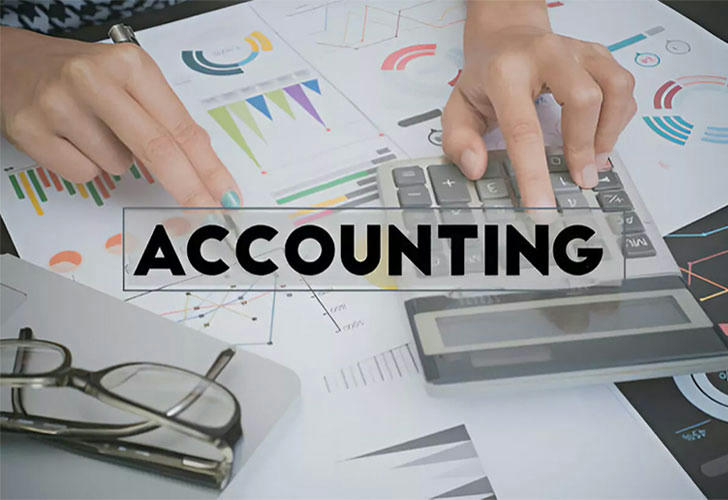Accounting Assistant Course: Your Path to a Rewarding Career
Are you looking for a practical way to enter the finance industry without spending years in school? An Accounting Assistant Course could be the ideal solution. Whether you want to work in a small business, a large corporation, or even pursue freelance bookkeeping, the right course can help you gain essential skills and open doors to a wide range of career opportunities.

1. What Is an Accounting Assistant Course?
An Accounting Assistant Course is a specialized program designed to equip you with the foundational knowledge and practical skills needed to support accountants, financial managers, or business owners with day-to-day financial tasks. These tasks typically include:
Bookkeeping (tracking income, expenses, and invoices)
Data Entry (entering financial transactions into accounting software)
Bank Reconciliations (comparing bank statements with internal records)
Payroll Processing (ensuring employees are paid accurately and on time)
Basic Tax Preparations (helping organize data for tax filings)
Why This Course Matters
High Demand: Almost every organization needs someone to handle financial records.
Stepping Stone to Higher Roles: Once you master the basics, you can explore advanced certifications or even pursue a degree in accounting.
Flexibility: Accounting assistants can work on-site, remotely, or as freelancers—whichever suits your lifestyle best.
An Accounting Assistant Course can typically be completed in a few months, offering practical, career-focused training without the hefty time or financial investment often associated with traditional college programs.
2. Course Structure and Curriculum
The exact structure of an Accounting Assistant Course can vary by institution, but most programs cover core topics to ensure you’re well-rounded and ready for entry-level accounting tasks.
Common Modules
| Module | What You’ll Learn |
|---|---|
| Fundamentals of Accounting | Basic concepts like debits & credits, the accounting equation, and financial statements |
| Bookkeeping Practices | Organizing ledgers, handling accounts payable & accounts receivable |
| Accounting Software | Hands-on experience with QuickBooks, Xero, or Sage |
| Payroll Management | Calculating wages, taxes, and benefits |
| Financial Reporting | Generating reports like income statements, balance sheets, and cash flow statements |
| Basic Taxation | Introductory knowledge of federal & state taxes, tax forms, and deadlines |
In-Person vs. Online Options
In-Person Courses: Typically offered at community colleges or vocational schools. You’ll get direct interaction with instructors and classmates, plus potential networking opportunities.
Online Courses: Perfect if you need flexibility due to work or family commitments. These often provide video lectures, interactive assignments, and discussion forums to simulate a classroom environment.
Duration and Certification
Most Accounting Assistant Courses run between 2 to 6 months, depending on whether you choose a part-time or full-time schedule. Upon completion, you may receive a certificate of completion or be eligible for entry-level accounting certifications (like the American Institute of Professional Bookkeepers (AIPB) certification).
3. Who Should Enroll in an Accounting Assistant Course?
Short answer: Anyone looking for a stable, well-paying job in the finance sector, or someone aiming to upskill their existing knowledge. Let’s break it down:
Career Changers: If you’re switching from a different field—like retail, hospitality, or administration—this course offers a quick way to gain financial skills and enter a new career path.
Small Business Owners: Managing your own books can save you time and money. A structured course helps you understand your financial statements and keeps you compliant with tax regulations.
Aspiring Accountants: This program is a stepping stone to higher-level certifications (e.g., CPA, CMA, or Enrolled Agent). It builds a solid foundation that will be invaluable if you choose to pursue further studies.
Administrative Professionals: If you already handle office tasks like scheduling or customer service, adding basic accounting skills can make you more versatile and indispensable to your employer.
Freelancers: Many entrepreneurs and gig workers choose to freelance as bookkeeping or accounting assistants. The course provides the credentials and skills you need to market yourself effectively.
Recommended Books & Software
If you want to accelerate your learning or reinforce what you’ve studied in class, here are some resources available on Amazon:
“Bookkeeping All-in-One For Dummies”
- A comprehensive guide covering bookkeeping essentials, financial statements, and small business tips.
“QuickBooks Online For Beginners 2025”
- Perfect for those who want to master QuickBooks, one of the most widely used accounting tools in small businesses.
“Accounting Made Simple: Explaining Accounting in Plain English”
- Breaks down complex accounting concepts into easy-to-understand language.
“Microsoft Excel 2025: Data Analysis and Reporting”
- Many entry-level finance roles require proficiency in Excel. This book helps you develop essential data analysis skills.
QuickBooks Online Subscription
- Gain real-world practice by using cloud-based QuickBooks. Track income, expenses, and run reports just like you would in a real workplace.
Conclusion
Ready to take the next step? Research local community colleges, vocational schools, or online platforms offering Accounting Assistant Courses. Compare curricula, tuition fees, and program length to find the perfect match. Before you know it, you’ll be on your way to a fulfilling and lucrative career in finance.
